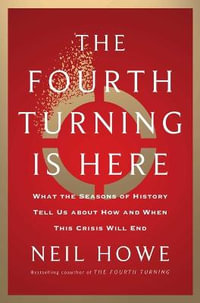Was there a conservative Enlightenment? Could a self-proclaimed man of learning and progressive science also have been an agent of monarchy and reaction? Cadwallader Colden (1688-1776), an educated Scottish emigrant and powerful colonial politician, was at the forefront of American intellectual culture in the mid-eighteenth century. While living in rural New York, he recruited family, friends, servants, and slaves into multiple scientific ventures and built a transatlantic network of contacts and correspondents that included Benjamin Franklin and Carl Linnaeus. Over several decades, Colden pioneered colonial botany, produced new theories of animal and human physiology, authored an influential history of the Iroquois, and developed bold new principles of physics and an engaging explanation of the cause of gravity.
The Enlightenment of Cadwallader Colden traces the life and ideas of this fascinating and controversial "gentleman-scholar." John M. Dixon's lively and accessible account explores the overlapping ideological, social, and political worlds of this earliest of New York intellectuals. Colden and other learned colonials used intellectual practices to assert their gentility and establish their social and political superiority, but their elitist claims to cultural authority remained flimsy and open to widespread local derision. Although Colden, who governed New York as an unpopular Crown loyalist during the imperial crises of the 1760s and 1770s, was brutally lampooned by the New York press, his scientific work, which was published in Europe, raised the international profile of American intellectualism.
Was there a conservative Enlightenment? Could a self-proclaimed man of learning and progressive science also have been an agent of monarchy and reaction? Cadwallader Colden (1688-1776), an educated Scottish emigrant and powerful colonial politician, was at the forefront of American intellectual culture in the mid-eighteenth century. While living in rural New York, he recruited family, friends, servants, and slaves into multiple scientific ventures and built a transatlantic network of contacts and correspondents that included Benjamin Franklin and Carl Linnaeus. Over several decades, Colden pioneered colonial botany, produced new theories of animal and human physiology, authored an influential history of the Iroquois, and developed bold new principles of physics and an engaging explanation of the cause of gravity.The Enlightenment of Cadwallader Colden traces the life and ideas of this fascinating and controversial "gentleman-scholar." John M. Dixon's lively and accessible account explores the overlapping ideological, social, and political worlds of this earliest of New York intellectuals. Colden and other learned colonials used intellectual practices to assert their gentility and establish their social and political superiority, but their elitist claims to cultural authority remained flimsy and open to widespread local derision. Although Colden, who governed New York as an unpopular Crown loyalist during the imperial crises of the 1760s and 1770s, was brutally lampooned by the New York press, his scientific work, which was published in Europe, raised the international profile of American intellectualism.
Industry Reviews
"The Enlightenment of Cadwallader Colden is shrewd, full of insight, and-in addressing the relationship of politics to science-opens up an area of inquiry to which early Americanists have paid scant attention. The book offers a keen analysis of a prominent but underappreciated figure and a vivid portrait of the New York intellectual world of which he was a part."-Ned Landsman, Stony Brook University, author of From Colonials to Provincials: American Thought and Culture, 1680-1760 "The Enlightenment of Cadwallader Colden restores royal government to a more balanced and legitimate place in the colonial narrative. John M. Dixon portrays Colden as a hard-working, loyal servant of the crown and empire who, inevitably given his intellect and strong character, ruffled the feathers of disgruntled locals when implementing his instructions from Whitehall. This pathbreaking book opens new horizons on the political and cultural life of colonial America."-Patricia U. Bonomi, New York University, author of A Factious People: Politics and Society in Colonial New York "In his vivid and engaging book, John M. Dixon recovers an example of the Enlightenment as a lived life, a fundamental personal orientation that exemplified a major cultural characteristic of the eighteenth century. Dixon's deep understanding of Cadwallader Colden's intellectual self allows for an exceptionally clear account of New York political life between 1720 and 1776."-Sara S. Gronim, Long Island University, author of Everyday Nature: Knowledge of the Natural World in Colonial New York

























